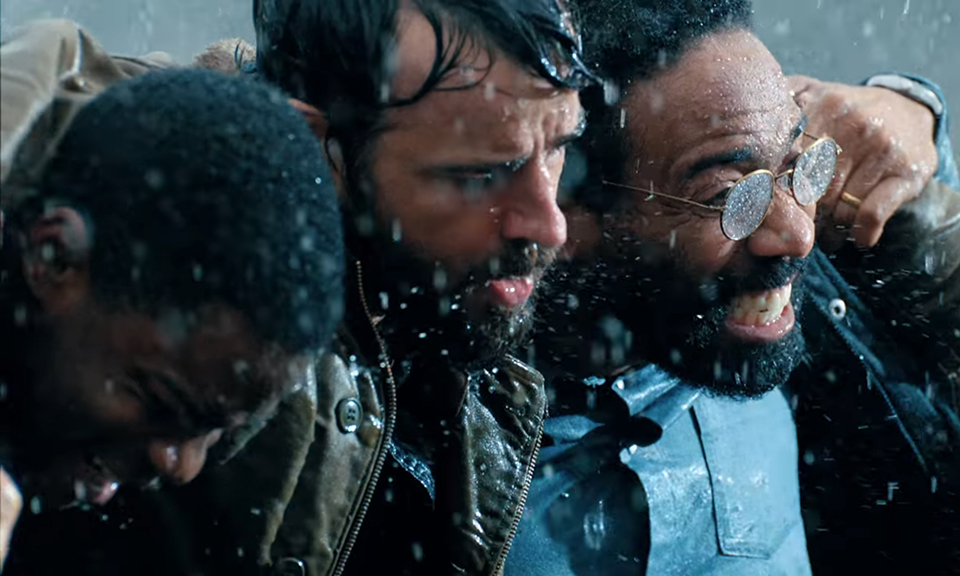In my review, I called The Leftovers’ second year one of the “all-time great seasons of television.” Almost two years later, those 10 perfectly realized episodes still stand tall over everything I’ve seen, from wonderful character dramas like Better Call Saul to pulp-fantasy fare like Game of Thrones. Few shows since have been as profound, moving, entertaining, deftly written, or hilarious, and none have managed to hit all of those buttons at the same time.
Somehow, with only 8 episodes left to provide an answer for the meaning to life, The Leftovers wrapped with an even more brilliant season of television. It’s a perfect swan song, managing to broaden its storytelling horizon more than previous years while somehow clarifying and solidifying its central thematic question. The degree of difficulty here is astounding, yet you never get the sense that the creators are struggling or being crushed under the weight of the monumental challenge. In the end, The Leftovers tells you everything, or nothing. It just depends on how much you want to believe.
Let’s start at the end. There’s no question in my mind that The Leftovers finale is great; instead, it’s a matter of HOW great. As it stands now, it’s either the best or the second best that I’ve seen, standing out from the crowd by telling a self-contained story that also wholly encapsulates the two predominant messages of the series: that belief should be more about choice and worldview than concrete reality or identity, and that our on-earth existence and interpersonal relationships are always more important than our feelings about the unknown.
A lot of the “great” finales, such as the one for The Shield, succeed because they touch on a wide variety of plotlines and satisfyingly cap them off in a way that makes sense. But The Leftovers’s finale goes big by staying small, centering itself squarely around a single character, playing with audience expectations, and ultimately telling us both more and less than we ever expected. It (arguably) delivers an answer to its biggest mystery, but does so in a scene in which we’re far more emotionally involved with a character placing his own blind faith in another character. For a show that has always been more interested in the emotional and psychological ramifications of the unknown than in the unknown itself, this focus feels perfectly on-message and, more importantly, earned.
The ending is also effective because of the stellar performances at the center of the show. Justin Theroux and Carrie Coon have put in years of solid work at this point, but top themselves again here. Coon in particular is transcendent, carrying a huge amount of narrative and emotional baggage, yet always delivering. If she isn’t showered with awards for this season, then there is something seriously wrong with the voting bodies.
But the two primary characters aren’t the only ones who are allowed to shine. Like in season 2, the episodes are structured so that each is a complete story centered around a particular character. Five of these center around Kevin and Nora, but three are given over to fantastic characters who have been frequently sidelined in earlier years. Scott Glenn is given far more screentime than before in his episode as Kevin Sr, bringing us into his delusional worldview. Christopher Eccleston’s Matt Jamison is given perhaps the strangest and most transformative arc of the series. And Amy Brenneman’s episode is a fascinating story that provides insight into her enigmatic character without completely spoiling her mystique.
It’s impressive enough that The Leftovers weaves a complex-yet-cohesive tapestry of excellent stories, but the season does so without ever feeling boring or pretentious. It’s consistently entertaining, shockingly weird, and often hilarious. This is one of the most frustrating things to try and convey when recommending the show. The first season can be slow, heavyhanded, and pretentious at times, and it’s hard to truly convey how hilariously out of left field some of the latter seasons’ greatest moments are without spoiling them outright. I suppose I’ll have to make reference to international assassins, the president’s twin, lion-themed orgy boats, nude nuclear submarine hijackings, deified discus throwers, and penile identification systems, and hope that’s enough to jog one’s interest.
Ultimately, though, there’s no way to fully convey in writing why this is a series worth watching. It’s a deft blend of terrific performances, gorgeous visuals, phenomenal direction, surprising arcs, and adherence to theme. Before this season, I had minor reservations about highly recommending a show with such a rough first season. But now that it has an ending as strong as anything in its previous season, I have no qualms with speaking of The Leftovers in the same breath as other TV classics like The Sopranos, Breaking Bad, and Mad Men.
